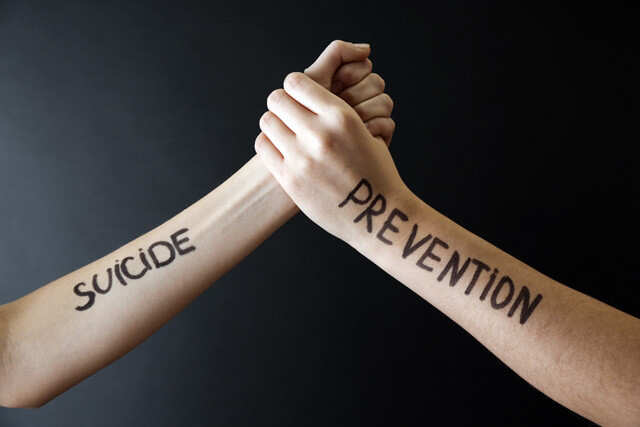As per the World Health Organization (WHO), suicide ranks as the fourth leading cause of death for individuals aged 15 to 19. Recognizing the signs of suicidal thoughts in someone is crucial because these thoughts can often be linked to underlying mental health issues that might remain unnoticed. Risk factors encompass various environmental factors that act as triggers, including financial difficulties, job-related stress, grief, exam pressure, interpersonal conflicts, substance abuse, existing psychiatric disorders, chronic physical ailments, and more.
Kamala Meenakshi G, a Counseling Psychologist at Fortis Hospital, Richmond Road, Bangalore, has compiled a list of warning signs that includes frequent isolation, reports of feeling helpless and lonely, guilt or shame, changes in appetite and sleep patterns (either increased or decreased), social withdrawal, increased alcohol or drug consumption, extreme mood swings leading to a loss of interest in daily routines, and a significant decline in confidence where life may seem unfair and uncontrollable.

Image: Shutterstock
“When we observe these symptoms in an individual, it is crucial to take immediate action to seek help. We should actively listen to them, establish a strong connection, assist in keeping them safe by limiting access to harmful materials or substances, guide and encourage them to seek professional help from mental health experts like psychiatrists or psychologists, and initiate therapy as soon as possible,” advises Kamala. She also suggests that in situations where contacting professionals is challenging, reaching out to a suicide prevention helpline can help mitigate the severity of the problem.
“It is our collective responsibility as a community to prevent such tragic incidents by understanding our fellow humans, gaining access to accurate information, and working towards destigmatizing the act of seeking psychological help,” she concludes.
Here are some common warning signs:
· Isolation
· Expressing Helplessness
· Overwhelming Loneliness
· Guilt or Shame
· Changes in Appetite and Sleep
· Social Withdrawal
· Substance Use
· Extreme Mood Swings
· Loss of Interest
· Decline in Self-Confidence
· Sudden Calmness
· Giving Away Belongings
Also Read: Mental Health Day: LGBTQ & Their Mental Health Post Reassignment Surgery208318.html




































